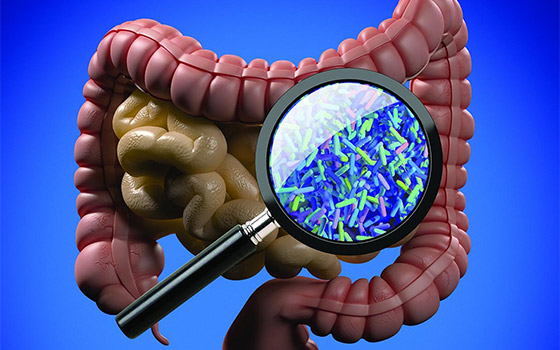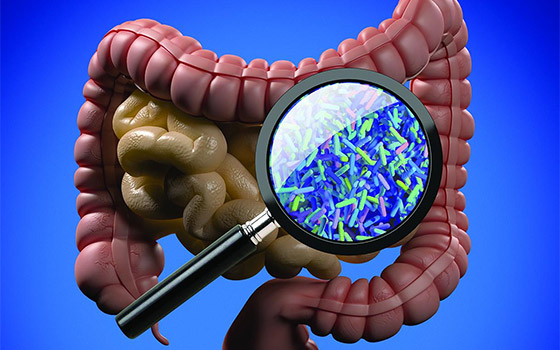Unlocking the Secrets of the Gut Microbiome
IFTNEXT
The human gut microbiome is getting a lot of attention these days as researchers begin to link the vast microbial ecosystem of the gut with health and disease.
Research suggests that the gut microbiome is incredibly responsive to dietary intake. In fact, gut microbiota have a symbiotic relationship with the human body: The microbiota survive on the foods that humans consume, feasting on the prebiotic fibers that humans could not digest without them. Recently, scientists have determined a way to change the makeup of gut microbes by remodeling the microbiome without the use of prebiotics or probiotics.
Most efforts at improving the makeup of gut microbiota involve the use of prebiotics and probiotics. However, researchers at the Scripps Research Institute have devised a new way to improve the composition of gut microbiota: remodeling the microbiome.
M. Reza Ghadiri and his research team at Scripps Research Institute have developed a class of molecules called self-assembling cyclic D, L-α-peptides. The team programmed the peptides to selectively modulate the growth of certain bacteria species in the gut. The researchers tested the peptide in mouse models to determine whether they would be effective in remodeling the guts of mice eating a poor diet to resemble the guts of mice eating a low-fat nutritious diet. Using the peptides, the team was successful in remodeling the gut microbiome of poor-diet mice to resemble the gut microbiome of mice consuming nutritious diets. The peptides appeared to increase the numbers of beneficial gut microbes and suppress the levels of molecules that increase inflammation and rebalance levels of metabolites associated with disease.
Alzheimer’s Disease
Research by scientists at Wake Forest School of Medicine suggests that diet has the potential to affect the gut microbiome in ways that could decrease the risk of Alzheimer’s disease.
In a small pilot study, the researchers identified several distinct gut microbiome signatures—the chemicals produced by bacteria— in participants with mild cognitive impairment (MCI) but not in their counterparts with normal cognition. They found that the bacterial signatures correlated with higher levels of markers of Alzheimer’s disease in the cerebrospinal fluid of the participants with MCI.
“The relationship of the gut microbiome and diet to neurodegenerative diseases has recently received considerable attention, and this study suggests that Alzheimer’s disease is associated with specific changes in gut bacteria and that a type of ketogenic Mediterranean diet can affect the microbiome in ways that could impact the development of dementia,” said study coauthor Hariom Yadav. Although the study lacks diversity due to the small subject group size, Yadav notes that the “findings provide important information that future interventional and clinical studies can be based on. Determining the specific role these gut microbiome signatures have in the progression of Alzheimer’s disease could lead to novel nutritional and therapeutic approaches that would be effective against the disease.”
Processed Foods
Formed during the food manufacturing process, Maillard reaction products (MRPs) in processed food can have harmful health effects. A study published in Cell Host & Microbe shows that human gut microbes can break down fructoselysine, a common MRP, into innocuous byproducts.
“This study gives us a deeper view of how components of our modern diets are metabolized by gut microbes, including the breakdown of components that may be unhealthy for us,” said Jeffrey I. Gordon, professor at Washington University School of Medicine in St. Louis and corresponding author of the study. “We now have a way to identify these human gut microbes and how they metabolize harmful food chemicals into innocuous byproducts.
“The new tools and knowledge gained from this initial study could be used to develop healthier, more nutritious foods as well as design potential strategies to identify and harness certain types of gut bacteria shown to process potentially harmful chemicals into innocuous ones,” declared Gordon. “A corollary is that they may help us distinguish between consumers whose gut microbial communities are either vulnerable or resistant to the effects of certain products introduced during food processing.”


